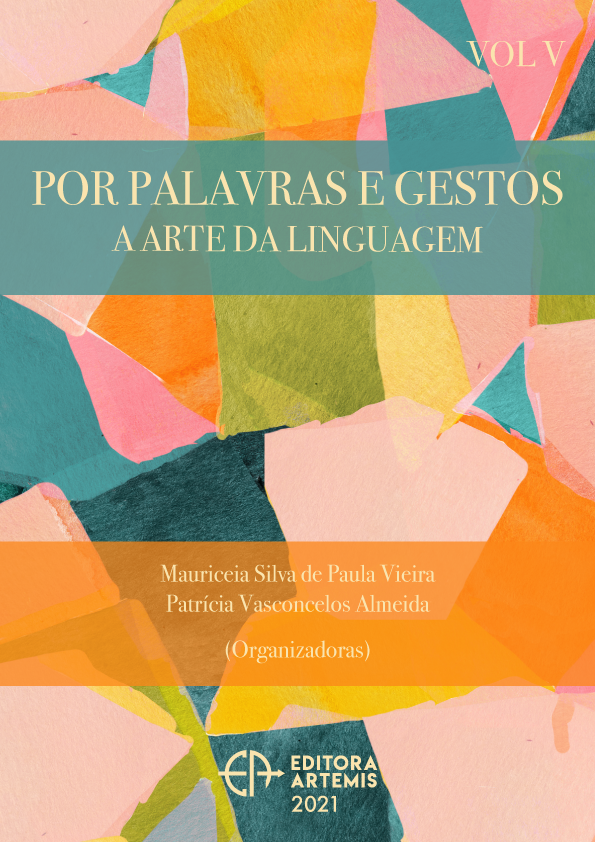
ENUNCIAÇÃO E GRAMÁTICA: O VERBO COMO SUPORTE PARA O ESTUDO DA TOPE
O presente trabalho busca apresentar os princípios básicos da Teoria das Operações Predicativas Enunciativas (TOPE) por meio do estudo do funcionamento dos verbos. As unidades verbais são polissêmicas e facilitam uma discussão produtiva e de fácil compreensão no que diz respeito aos conceitos a serem apresentados. O fundamento teórico para o desenvolvimento deste trabalho são os estudos de Culioli, e diversos outros estudiosos no Brasil e na Europa (CULIOLI, 1990; DE VOGÜÉ, FRANCKEL, PAILLARD, 2011; VALENTIN, LE JEUNE, 2009) que seguem a linha de pesquisa da TOPE. Nosso objetivo é discutir os conceitos básicos, entre eles, a construção de sentido, o enunciado e as suas condições de interpretação, bem como o funcionamento verbal. Como nosso foco não é apresentar o estudo aprofundado de uma unidade verbal, mas apresentá-lo como uma saída mais simples para apresentar a teoria em questão, utilizaremos unidades lexicais como passar, correr e descobrir que são resultados de estudos realizados por vários autores. O intuito de apresentar essa teoria é suscitar algumas discussões sobre a relação entre gramática e enunciação e como muitas vezes compreendemos essa gramática de forma estática e prescritiva sem refletir sobre os usos que fazemos da língua materna. A TOPE nos proporciona uma reflexão muito interessante, abordando a relação entre língua e linguagem e destacando o poder de adaptação da língua aos usos e como tudo se constrói dentro do próprio enunciado. Ao longo deste trabalho, podemos observar como os valores semânticos vão se (re)construindo a cada enunciado e ao fim podemos ver a título de exemplo e de forma resumida o funcionamento do verbo descobrir.
ENUNCIAÇÃO E GRAMÁTICA: O VERBO COMO SUPORTE PARA O ESTUDO DA TOPE
-
DOI: 10.37572/EdArt_16082143915
-
Palavras-chave: Enunciação; Gramática; TOPE; Funcionamento verbal.
-
Keywords: Enunciation; Grammar; TOPE; Verbal functioning.
-
Abstract:
The present work seeks to present the basic principles of the Theory of Enunciative Predicative Operations (TOPE) through the study of the functioning of verbs. Verbal units are polysemic and facilitate a productive and easy discussion regarding the concepts to be presented. The theoretical foundation for the development of this work are the studies of Culioli, and several other theorists in Brazil and Europe (CULIOLI, 1990; DE VOGÜÉ, FRANCKEL, PAILLARD, 2011; VALENTIN, LE JEUNE, 2009) who follow the line of research of TOPE. Our objective is to discuss the basic concepts, among them, the construction of meaning, the utterance and its interpretation conditions, as well as the verbal functioning. As our focus is not to present the in-depth study of a verbal unit, but to present it as a simpler way out to present the theory in question, we will use lexical units such as pass, run and discover that are the results of studies carried out by several authors. The purpose of presenting this theory is to raise some discussions about the relationship between grammar and enunciation and how we often understand this grammar in a static and prescriptive way without reflecting on the uses we make of the mother tongue. TOPE provides us with a very interesting reflection, addressing the relationship between language and language and highlighting the ability of language to adapt to uses and how everything is built within the utterance itself. Throughout this work, we can observe how the semantic values are (re)constructed in each statement and at the end we can see, as an example and in a summarized form, the functioning of the verb to discover.
-
Número de páginas: 15
- ANDREANA CARVALHO DE BARROS ARAUJO
- Deislandia de Sousa Silva

